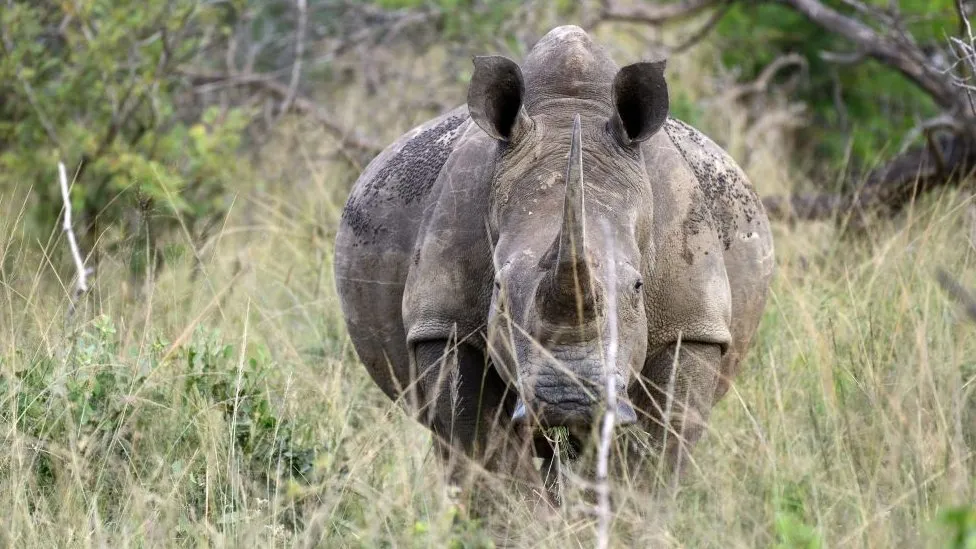In a disheartening setback, South Africa’s ongoing struggle against rhino poaching has encountered a troubling surge in casualties throughout 2023.
Environment Minister Barbara Creecy revealed that the grim tally of rhinos lost to poaching reached 499 last year, marking a distressing increase of 51 from the previous year. South Africa, home to the majority of the world’s rhino population, finds itself at the forefront of this conservation battle.
The nation’s black rhinos, numbering around 2,000, teeter on the brink of extinction, classified as “critically endangered,” while approximately 13,000 white rhinos, deemed “near threatened,” face mounting risks. Despite a notable decline in poaching since 2014, recent years have seen a troubling resurgence in these illicit activities.
The insatiable demand for rhino horns in Asian markets, particularly in countries like China and Vietnam, where they are prized for their purported medicinal properties, continues to fuel this relentless slaughter.
Most alarming is the concentration of poaching incidents within the confines of Hluhluwe-iMfolozi Park in KwaZulu-Natal province, where the majority of last year’s casualties occurred. However, a glimmer of hope emerges from Kruger National Park, previously a poaching hotspot, which witnessed a remarkable reduction of over a third in incidents during 2023.
Minister Creecy attributed this success to intensified anti-poaching efforts within Kruger, prompting criminal syndicates to seek easier targets elsewhere. Nonetheless, the concerning escalation in poaching activities remains a pressing issue.
Musa Mntambo, spokesperson for the company overseeing Hluhluwe-iMfolozi Park, expressed grave concern over the situation, citing the park’s increased visibility as a contributing factor to its vulnerability.
Efforts to combat poaching include the allocation of $2.1 million to enhance park fencing and the implementation of additional security measures such as increased patrols and aerial surveillance.
Despite these initiatives, Jamie Joseph, head of the environmental group Saving the Wild, remains critical of the government’s approach, advocating for a more proactive stance involving intelligence gathering and targeted enforcement actions.
While Minister Creecy commended the Directorate for Priority Crime Investigation for its efforts, which led to the conviction of 45 rhino poachers and traffickers last year, the battle against rhino poaching persists, demanding continued vigilance and innovation in conservation strategies.
